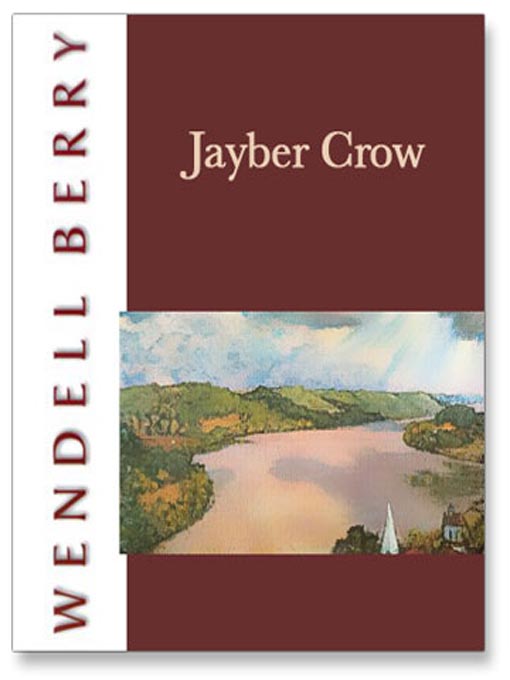
Jayber Crow
Port William
کتاب های مرتبط
- اطلاعات
- نقد و بررسی
- دیدگاه کاربران
نقد و بررسی

The celebrated novelist and poet returns to Port William, Kentucky, to tell the story of Jayber Crow, town barber. He is wonderfully performed by the talented Paul Michael. A one-time seminary student, Jayber now sits in his barber chair and watches the changes in his once agrarian world, espousing a Christian philosophy that is both ancient and fresh. Narrator Michael goes easy on the rural accents and handles the passages of life lessons with professionalism and grace. Michael allows his voice to age as the story pulls listeners deeper and deeper into Jayber's quiet, unassuming life. Highlights include an unrequited love affair, eventually fulfilled just as life is drawing to a close. R.O. (c) AudioFile 2007, Portland, Maine

August 27, 2007
Jayber Crow, town barber in Port William, Ky., recounts his life journey, which parallels the decline of sustainable agriculture throughout rural America. The agrarian threads also run through the novel's romantic triangle, in which Crow pines for the heart of the gracious and beautiful Mattie Chapman, whose ambitious “agribusinessman” husband, Troy, embodies the antithesis of Crow's sacred devotion to nature. Veteran narrator Paul Michael effectively portrays Crow's complexities and contradictions as both an insider at the hub of community life and a self-sufficient loner who eschews the material comforts and conveniences of the modern age. As Crow and his friends feast on fried catfish and corn pone at a “water-drinking party,“ Michael's whimsical imitation of the “good, good, good” sound of a moonshine whiskey jug evokes a wistful connection to the joyous simple pleasures of a contemplative existence. Michael's deliberate pronunciation of hard consonant sounds as Crow repeatedly scoffs at the machine-like momentum of “the war” and “the economy” may seem heavy-handed. Yet Berry's activism informs his storytelling, so listeners familiar with his body of work should not be surprised by the political edge. A Counterpoint paperback (Reviews, July 31, 2000).

September 4, 2000
The role of community in the shaping of character is a recurring theme in the work of poet, essayist and novelist Berry, as evidenced once more in this gratifying novel set in Berry's fictional Port William, Ky. Jayber Crow, town barber from 1937 until 1969, is born in the environs of Port William, but after the deaths of his parents and, later, his guardians, he is sent to an out-of-town orphanage at the age of 10. Returning 13 years later, in the flood year of 1937, the solitary young man goes on to learn the comradely ways of the town. "In modern times much of the doing of the mighty has been the undoing of Port William and its kind," Crow reflects--a reflection, too, of Berry's often-stated beliefs that salvation must be local, that rootlessness and a fixation on the postindustrial era's bright new toys will destroy us environmentally and economically. Crow earns his living with simple tools; he becomes a church sexton, though he is not unthinkingly pious; and his unrequited love for farmer's wife Mattie Chatham is pure and strong enough to bring him serene faith. In contrast, Mattie's husband, Troy, the novel's villain, disturbs the "patterns and cycles of work" on Mattie's family farm, trumpeting "whatever I see, I want" and using a tractor. The tractor stands for the introduction of new machinery and the unraveling of the fabric of family farming. It is not surprising when Troy cheats on his wife nor does it come as a shock when the Chatham's young daughter becomes a victim of dire chance. Berry's narrative style is deliberately traditional, and the novel's pace is measured and leisurely. Crow's life, which begins as WWI is about to erupt, is emblematic of a century of upheaval, and Berry's anecdotal and episodic tale sounds a challenge to contemporary notions of progress. It is to Berry's credit that a novel so freighted with ideas and ideology manages to project such warmth and luminosity. 12-city author tour.

























دیدگاه کاربران